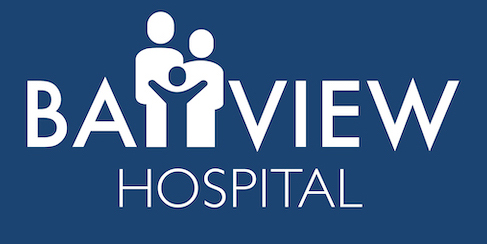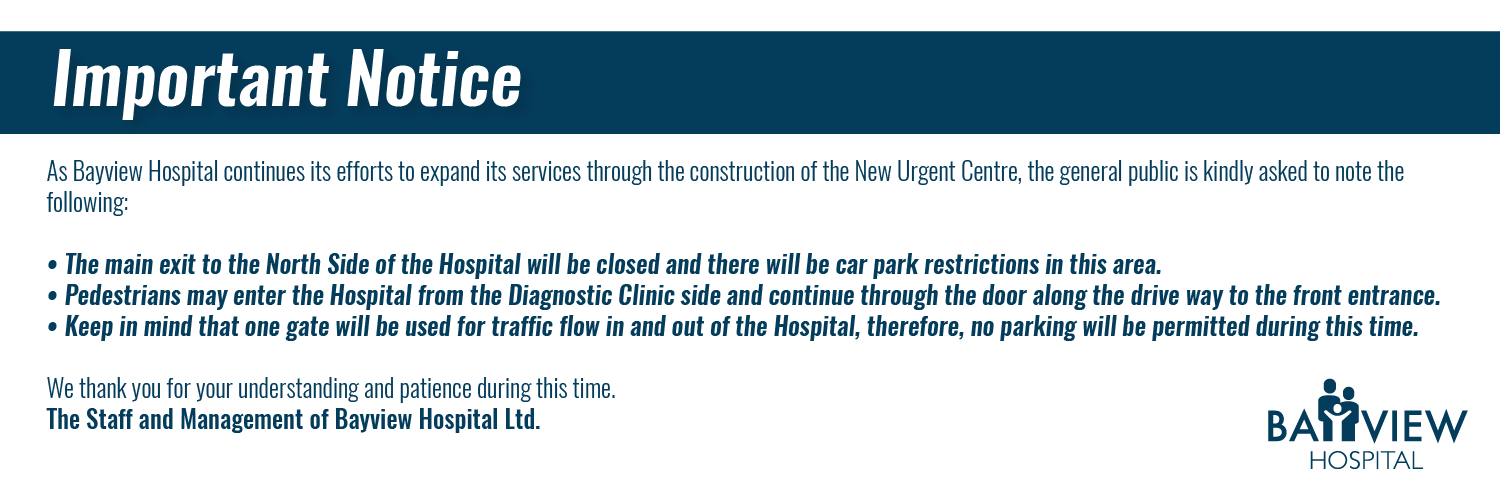Bayview Hospital's website uses cookies so that we can provide you with the best user experience possible. Cookie information is stored in your browser and performs functions such as recognising you when you return to our website and helping our team to understand which sections of the website you find most interesting and useful.
Breast Cancer Awareness 2019
Breast Cancer Awareness Month!

Bayview Hospital is dedicated to ensuring that you are well equipped with helpful information to minimize the risk of developing Breast Cancer. As proactive screening is known to be the best method for early detection, we have compiled a brief list on how to reduce the probability of developing this disease. We will also lend tips on the best methods to help with early detection. While women are more prone to develop breast cancer, men are also at risk. It is therefore critical to execute regular screenings and maintain a healthy lifestyle in order to decrease your probability of developing this disease. To learn more about the symptoms of Breast Cancer, you can read here.

- Read labels and avoid using harmful products – There are many ingredients linked to cancer, endocrine disruption, and reproductive harm in personal care products, cosmetics, cleaning products and food packaging. Learn about the products that you are buying. You can read these labels here for more information.
- Buy from companies committed to full ingredient disclosure – If you are unsure, do not use it. Labeling loopholes have allowed some companies to avoid disclosing ingredients on the labels of household cleaners, food packaging and hair and nail salon products.
- Avoid Fragrance (or parfum) in a cocktail of ingredients – Each fragrance can potentially include dozens of potentially harmful chemicals. Avoid purchasing and using personal care products, cleaning products, clothing, and home goods with added fragrance as often as possible.
- Receive regular mammograms – This is especially important for those with one or more risk factors and those over a certain age.
- Wear a properly fit bra – Use a sports bra for exercising and make sure you are measured properly for the best fit for any bra.
- Perform monthly breast self-exams – This is your time to take an active role in your breast health and prevention.

- Maintain a safe weight and avoid obesity – Maintaining a healthy weight is important for overall health and can help you prevent and control many diseases and conditions. Being obese puts you at higher risk of developing serious health problems, including heart disease, high blood pressure, type 2 diabetes, gallstones, breathing problems, and certain cancers.
- Exercise regularly – The American Heart Association recommends that individuals do moderate exercise for at least 150 minutes per week, or 75 minutes per week of vigorous exercise.
- Reduce fat intake – Preferably opt for fresh fruits, vegetables and other high fiber foods.
- Keep alcohol consumption to a minimum – Alcohol is considered a macro-nutrient in that it provides energy (about 7 calories per gram). The equivalent of a 1-ounce shot of liquor is approximately 80 to 90 calories.
- Stop smoking – Smoking is the main culprit in heart disease, strokes, bronchitis and emphysema, and gastric ulcers and Chronic Obstructive Pulmonary Disease (COPD), and various diseases including breast cancer.
If you need help organizing a screening, you can contact us today and we will be happy to assist!
Contact Us Today!




